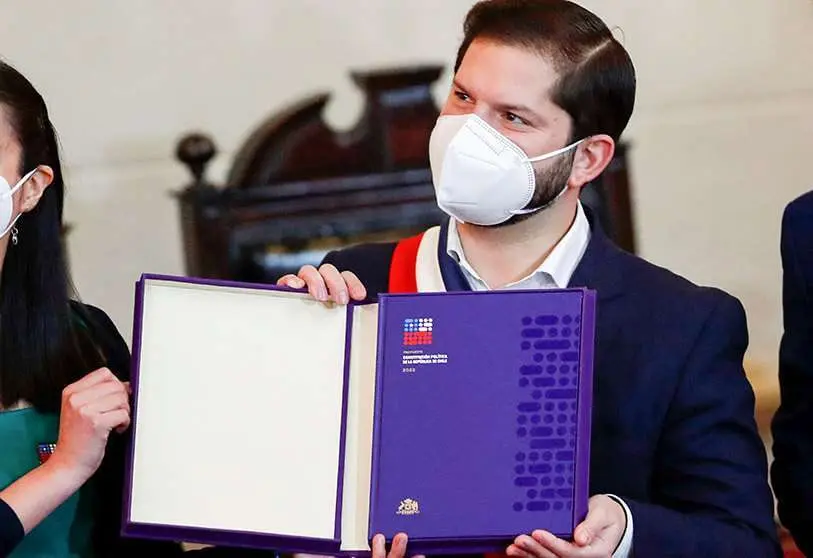A Constitution that will further divide Chile

I wish it were not so, but it seems unlikely that the new Chilean Constitution will find majority support and leave no room for doubt among the 15 million voters who are obliged to vote for it on 4 September.
On receiving the text from the hands of the Constitutional Convention, President Gabriel Boric wanted to solemnise the importance of the text by proclaiming that "once again it will be the people who will have the last word on their destiny", also decreeing that "Chile is beginning a new era".
A reading of the 388 articles and 57 transitional rules, which make this text one of the most extensive constitutions in the world, reveals a clear break with the regulations and powers of the legislative, executive and judicial powers, a veritable revolution that, according to the polls, polarises the country even more if possible.
In fact, the very composition of the Constituent already announced a text of rupture. Of the 154 independent citizens or those affiliated to political parties that made up the Constituent Assembly, more than a hundred proclaimed themselves to be left-wing, with a preponderance of the more radical tendencies, leaving the centre and the right practically no possibility of blocking the final drafting of the text. The 17 members of Chile's indigenous peoples, especially the Mapuche, had more influence, however, and managed to ensure that, in the draft of the new Constitution, Chile is defined not only as a "social and democratic state governed by the rule of law", but also as "a plurinational and intercultural state that recognises the coexistence of diverse nations and peoples". After that, the text recognises the full exercise of their individual rights, especially that of autonomy and self-government". This wording provoked the jubilation of the numerous attendees and demonstrators at the act of handing over the document to President Boric, so much so that the proliferation of indigenous flags overshadowed the minority presence of Chile's national ensign.
In addition to proclaiming absolute parity, the gender perspective is also another constant in the draft Constitution. Thus, it states the state's obligation to ensure "a society in which women, men, gender diversity and gender dissidence participate in conditions of substantive equality".
The bill also breaks with the American tradition of a strong executive power, embodied in regimes with a pronounced presidentialism. Its powers are curtailed, and a substantial part of its powers would be transferred to regional governments. Both the president and the deputies would not be able to extend, a priori in any case, their stay in office for more than two terms, i.e. eight years.
Of the two current legislative chambers, the Congress of Deputies would remain, but not the Senate, which would give way to a Chamber of Regions, albeit with limited powers.
As for the judiciary, it would be divided into two: the National Justice System, to which the majority of citizens would be subject, and the Indigenous Peoples' Justice System, in which the rulings of their ancestral authorities would have the same coercive force as the former. If approved, the first clash between the two legalities will occur when indigenous peoples demand the restitution of their territories and resources, relying on the constitutional text that recognises precisely land restitution as "the preferred mechanism of reparation" [for past injustices].
As if he had already foreseen the storm that would arise during the two months before the referendum, President Boric, who under various pretexts was not accompanied by any of his predecessors in La Moneda, called for "intense debate on the text, but without engaging in lies, distortions or catastrophic interpretations disconnected from reality". Boric reaffirmed his support for the draft Constitution, which would remove what he saw as the main obstacle under the current 1980 Constitution: preventing any substantive social reform.
With polls showing 44% in favour of "rejection" to 25% in favour of "approval", and 40% undecided, at this stage it is difficult to believe that one of the two options will win by a considerable majority. If the project were to win, even if only narrowly, it is conceivable that Boric and his Frente Amplio-Partido Comunista coalition would agree to some kind of reform of the reform. But if the rejection wins, as the polls currently show, the reaction could set the country on fire, since the current 1980 Constitution, drafted at the time under the watchful and implacable eye of the military regime, would remain in force.

